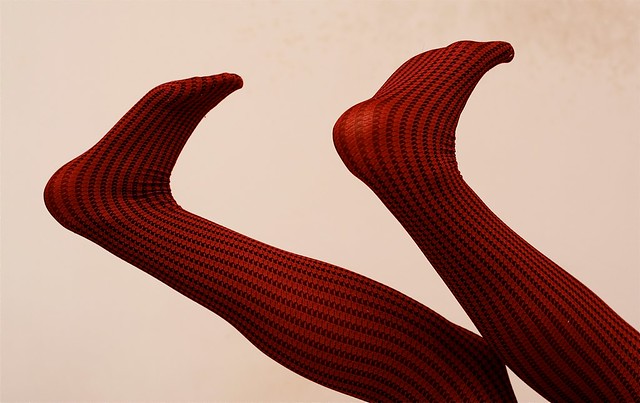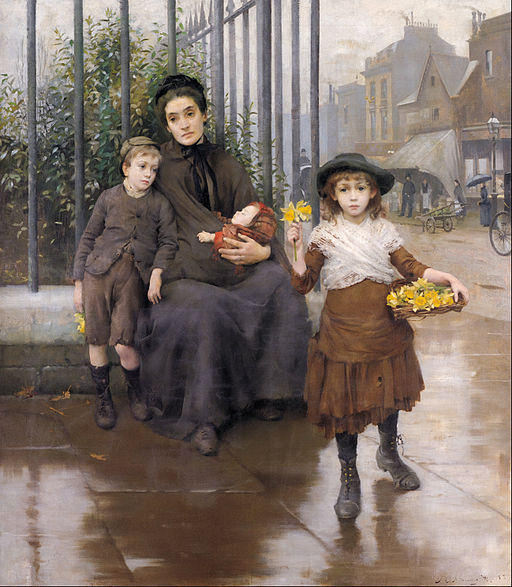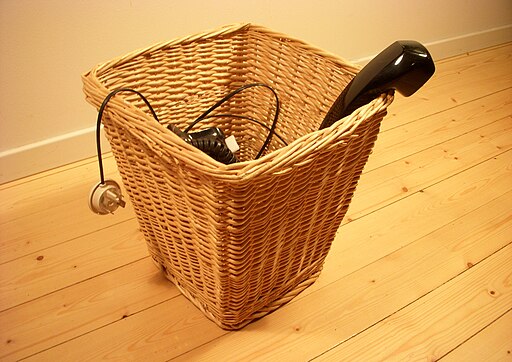Yep, that Pollyanna. This isn’t a book review; I’m thinking of Pollyanna herself and her attitude, her “Glad Game.” She is practically synonymous with that positive view on life which is gratitude. We tend to think of gratitude as ‘saying thank you’ – but it runs a whole lot deeper than that. Gratitude isn’t just saying thank you for a gift, it’s a matter of what you recognize as a gift.
 Pollyanna is a surprisingly unpopular child in this day and age; I have even heard “Pollyanna” used as a put-down or insult, when someone is deemed to be unacceptably positive or optimistic. And there, in a nutshell, you have the two fundamental ways of looking at life, the positive and the negative, the Pollyanna and the put-down.
Pollyanna is a surprisingly unpopular child in this day and age; I have even heard “Pollyanna” used as a put-down or insult, when someone is deemed to be unacceptably positive or optimistic. And there, in a nutshell, you have the two fundamental ways of looking at life, the positive and the negative, the Pollyanna and the put-down.
One looks for the best in everything, and is thankful for it. The other sees the worst in everything, and is continually discontented and grumbling. I myself have been far too often guilty of the second, but I have hopes of reform. It will no doubt take practice, but hey, what’s neuroplasticity for, if not holding out the hope of lasting change?
Epicurus and Epictetus, the two Epic philosophers (the management apologizes for the irresistible pun) both had something to say on the subject of gratitude. The former advised people to “not spoil what you have by desiring what you have not; remember that what you now have was once among the things you only hoped for.” The latter contented himself with noting that “he is a wise man who does not grieve for the things which he has not, but rejoices for those which he has.” Different words, same idea. Count your blessings.
 Of course, counting other people’s blessings for them is seldom a good idea – unless you’re sharing their difficulties as well. Consider the astoundingly thankful Betsie ten Boom, who, according to her sister Corrie, was even thankful for the fleas which infested their barracks in Ravensbrück concentration camp. Why? Because of Paul’s urging to “Be thankful in all circumstances, for this is God’s will for you who belong to Christ Jesus.” Corrie admits to having been somewhat dubious, until she realized that their contraband Bible and totally forbidden Bible studies were escaping notice because none of the camp staff wanted to go in to inspect the place. God moves in mysterious (and sometimes itchy) ways…
Of course, counting other people’s blessings for them is seldom a good idea – unless you’re sharing their difficulties as well. Consider the astoundingly thankful Betsie ten Boom, who, according to her sister Corrie, was even thankful for the fleas which infested their barracks in Ravensbrück concentration camp. Why? Because of Paul’s urging to “Be thankful in all circumstances, for this is God’s will for you who belong to Christ Jesus.” Corrie admits to having been somewhat dubious, until she realized that their contraband Bible and totally forbidden Bible studies were escaping notice because none of the camp staff wanted to go in to inspect the place. God moves in mysterious (and sometimes itchy) ways…
So if Betsie could be grateful even for fleas in a concentration camp, surely we can find things to be grateful for in our own lives! Let us be honest with ourselves. Very few people will not be thankful if they are given an obvious gift, but the world still has an enormous number of basically negative people. I know – I’m a recovering negativeer myself. The problem isn’t that we are all basically pre-haunting Ebenezer Scrooges; the problem is that we don’t recognize most things as gifts. As G. K. Chesterton pointed out, “When we were children we were grateful to those who filled our stockings at Christmas time. Why are we not grateful to God for filling our stockings with legs?”
 You may answer, because we don’t all believe in God. And perhaps you don’t, but it is still necessary for you to be grateful, even if you find yourself in the somewhat awkward position of being full of undirected thanks. Because people who are not grateful, who are never thankful for all the good things in their life but take them all for granted and focus only on the shortcomings and lacks – these people do not have good lives.
You may answer, because we don’t all believe in God. And perhaps you don’t, but it is still necessary for you to be grateful, even if you find yourself in the somewhat awkward position of being full of undirected thanks. Because people who are not grateful, who are never thankful for all the good things in their life but take them all for granted and focus only on the shortcomings and lacks – these people do not have good lives.
I don’t mean to suggest that if you expect bad, bad happens, and if you expect good, good happens. Your attitude isn’t in complete control of what happens to you, but it does control how you experience what happens to you. Life is a mix of good and bad for everyone. What matters is what you focus on and what you skate over. Beauty isn’t the only thing in the eye of the beholder.
Two years ago, 689,000 Facebook guinea-pigs users were subjected to an experiment: if what they saw on Facebook was filtered to skew more positive or more negative, would what they wrote move in the same direction? Answer: yes. There is quite a bit of controversy about this – not least the ethics of experimenting on people’s emotional balance without their permission, or, indeed, knowledge – but it raises an interesting point.

So be grateful. Not just for the obvious things, but for the unlikely ones, the ones that aren’t immediately recognizable; the ones that fade into the background of your life, the blessings that are too big to notice. Because there’s a reason why the word “ungrateful” is so often followed by the word “wretch”.
As with so many things in life, gratitude is easier if you get in the habit of it. The Caped Gooseberry and I finish each day tucked up in bed thanking God for the good things of the day. It’s something the Caped Gooseberry started in the earliest days of our marriage, and we’ve made it a habit. It works for us, and it makes sure that at least once each day, we focus on seeing the good. Even the worst day, when reviewed in memory, proves to have hidden pockets of blessings for which to be thankful.
And happily, there is no statute of limitations on gratitude! You can be thankful for the same thing(s) for years; you can be thankful for something you just remembered from years ago. There’s no correct technique to worry about, just have at it! But if you’ve forgotten how to be grateful, take a course of Pollyanna.




